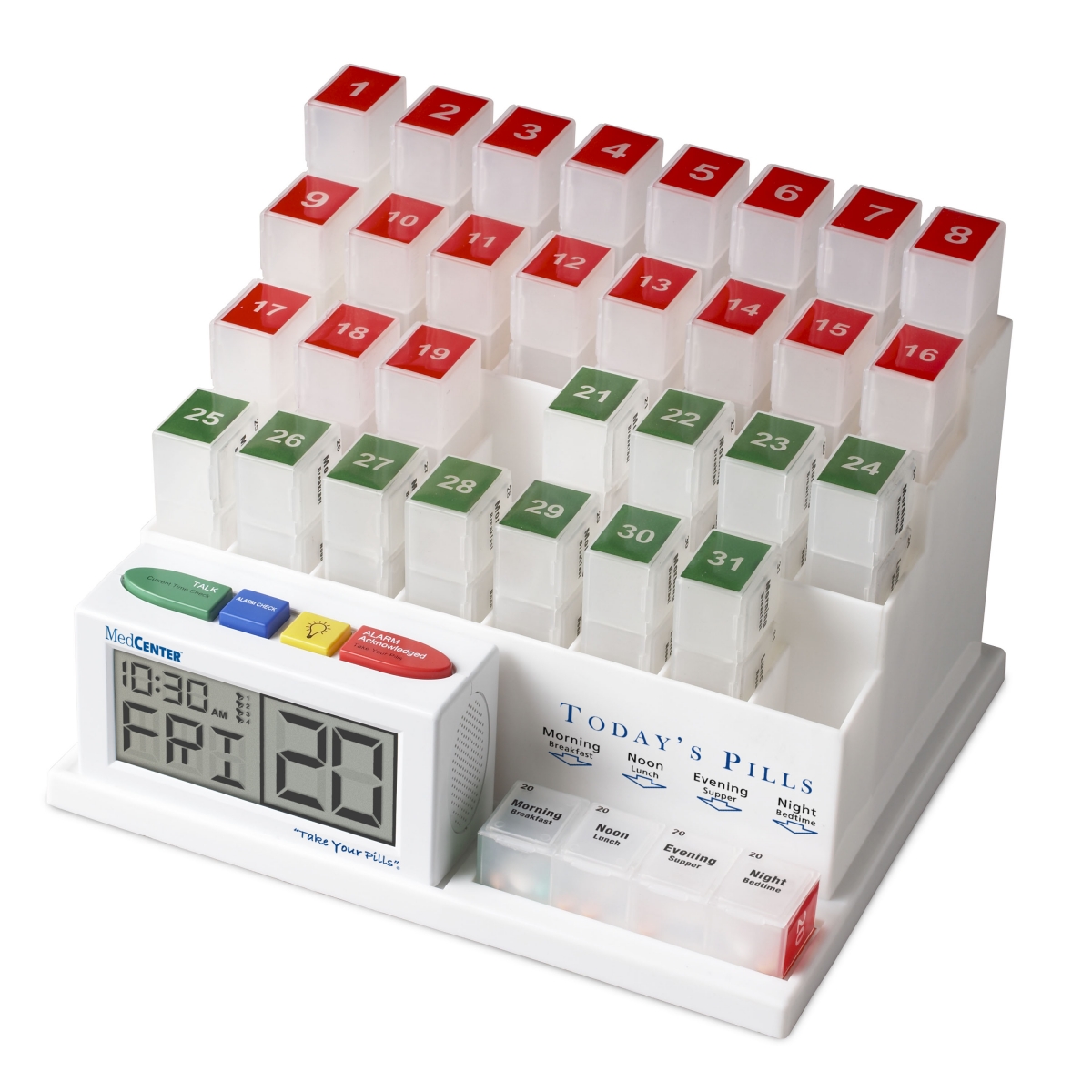There’s a crisis of medication management emerging in the U.S. health care system. Not only are millions of Baby Boomers—the generation born between 1946 and 1964—now entering retirement, many are still taking care of at least one parent. These 77 million Boomers are the fastest-growing customer base for retail HME products, both for an aging parent and for their own medical challenges. Back in the 1950s and ’60s Baby Boomers had a major impact on how companies and retailers marketed products, and an even greater impact on what products were brought to market. They created huge profits for items such as Barbies, Hula Hoops, Play-Doh and thousands of other products. Today, they are already having a considerable impact on products designed to help them and their parents remain independent into their eighties and beyond.
The figures surrounding medication mismanagement are staggering. More than half of all prescription medication users are currently taking their medications improperly. Forty percent of all admissions to nursing homes are due to poor medication adherence. Thirty percent of all readmissions to hospitals within 30 days of being released are also caused by poor medication adherence. The estimated cost of medication mismanagement to the U.S. economy and health care system is approaching $300 billion annually.
Diagnoses of chronic illnesses have increased along with the aging population. Diabetes now affects more than 25 million Americans, and the numbers rise daily. Congestive heart failure (CHF) currently affects five million Americans and is increasing by approximately 500,000 new cases every year. Hypertension (high blood pressure) is estimated to impact 25 percent of all adults at some point in their lives. Obesity, cancer and other illnesses add additional costs to the already financially strained health care system.
Growing awareness of the medication adherence problem in the U.S. offers tremendous opportunities for HME providers to enhance their offerings of medication management aids. MedCenter Systems LLC, for instance, offers medication aids with a variety of features that are specially designed to help the senior market manage their medication schedules. The MedCenter System is a 31-day interactive organizer with a four-alarm talking reminder clock. The MedCenter Your Minder talking clock features six, 10-second recordable reminders. In each instance the user will look forward to hearing a loved one’s voice that can be recorded as the medication reminder. Both products are interactive, which is key to helping the user improve his or her medication adherence and proper spacing between dosages. Medication management systems like the MedCenter family of products can help save on medical and prescription drug copays, reduce travel expenses to and from appointments and decrease stress on patients and their caregivers.

It is critical that HME providers properly train the personnel who interact with customers so they can help patients identify medication management needs and suggest solutions. Many product features and benefits must be explained and often demonstrated. Take advantage of any training and marketing materials manufacturers may offer. MedCenter, for example, offers a 60-second commercial that is beneficial in training and demonstrating the MedCenter System. The company also offers HME providers a brochure that can be stamped with their store’s contact information.
One of the major challenges the caregiver may have is in convincing the older person to actually use the device. Many seniors don’t feel that they need assistance. Pointing out that these devices will help them maintain independence longer is a big motivator for seniors. Furthermore, when seniors begin using a medication management system while they are still functioning at a high level, interacting with the system becomes an automatic, familiar routine that can be maintained as skills begin to decline.
Seniors and caregivers know it’s in everyone’s best interests to keep Grandma and Grandpa out of the nursing home as long as they can function independently in a safe manner. For HME providers, a customer going to a nursing home usually means no future sales to that patient. Medication management systems reduce health care costs while helping seniors stay in their homes. They can decrease stress for the family and help maintain an active, loyal customer for the HME provider.
